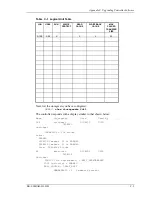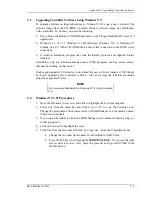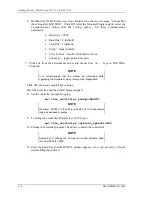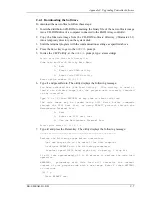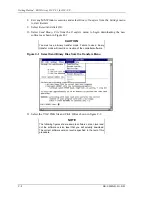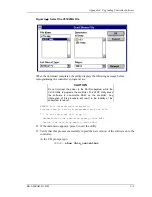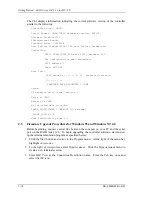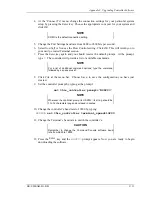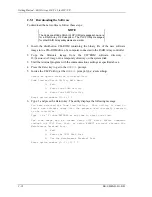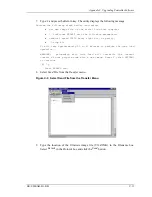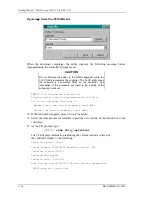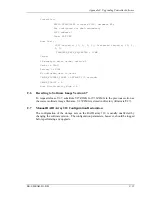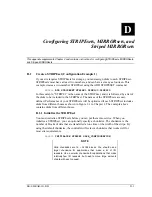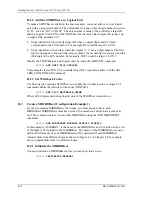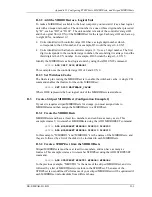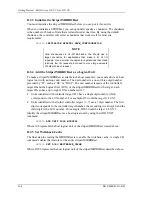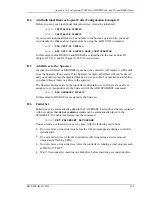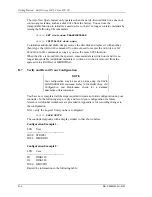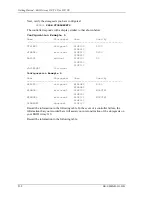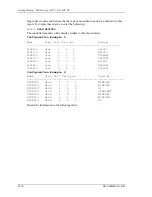
EK–SMRAB-IG. B01
D–1
D
Configuring STRIPEsets, MIRRORsets, and
Striped MIRRORsets
This appendix supplements Chapter 2 and contains instructions for configuring STRIPEsets, MIRRORsets,
and Striped MIRRORsets.
D.1
Create a STRIPEset (Configuration Example 1)
If your site requires STRIPEsets for storage, you must assign disks to each STRIPEset.
STRIPEsets must have at least two members, and can have as many as fourteen. This
example creates a two-member STRIPEset using the ADD STRIPESET command.
HSZ20> ADD STRIPESET STRIPE1 DISK130 DISK220
In this example, “STRIPE1” is the name of the STRIPEset, and it is followed by a list of
the disks to be included in the STRIPEset. The names of the STRIPEsets are user-
defined. Performance of your STRIPEsets will be optimized if each STRIPEset includes
disks from different buses as shown in Figure 2–1 in Chapter 2. The example above
contains disks from different buses.
D.1.1 Initialize the STRIPEset
You must initialize STRIPEsets before you can put them into service. When you
initialize a STRIPEset, you can optionally specify a chunksize. The chunksize is the
number of blocks of data that are transferred at one time or the width of the stripe. By
using the default chunksize, the controller will select a chunksize that works well for
most site requirements.
HSZ20> INITIALIZE STRIPE1 SAVE_CONFIGURATION
NOTE
Valid chunksizes are 16 – 32768 blocks. You should use a
larger chunksize for applications that make a lot of I/O
requests. Use a smaller chunksize for applications that make
relatively few I/O requests, but need to move large amounts
of data with each request.

